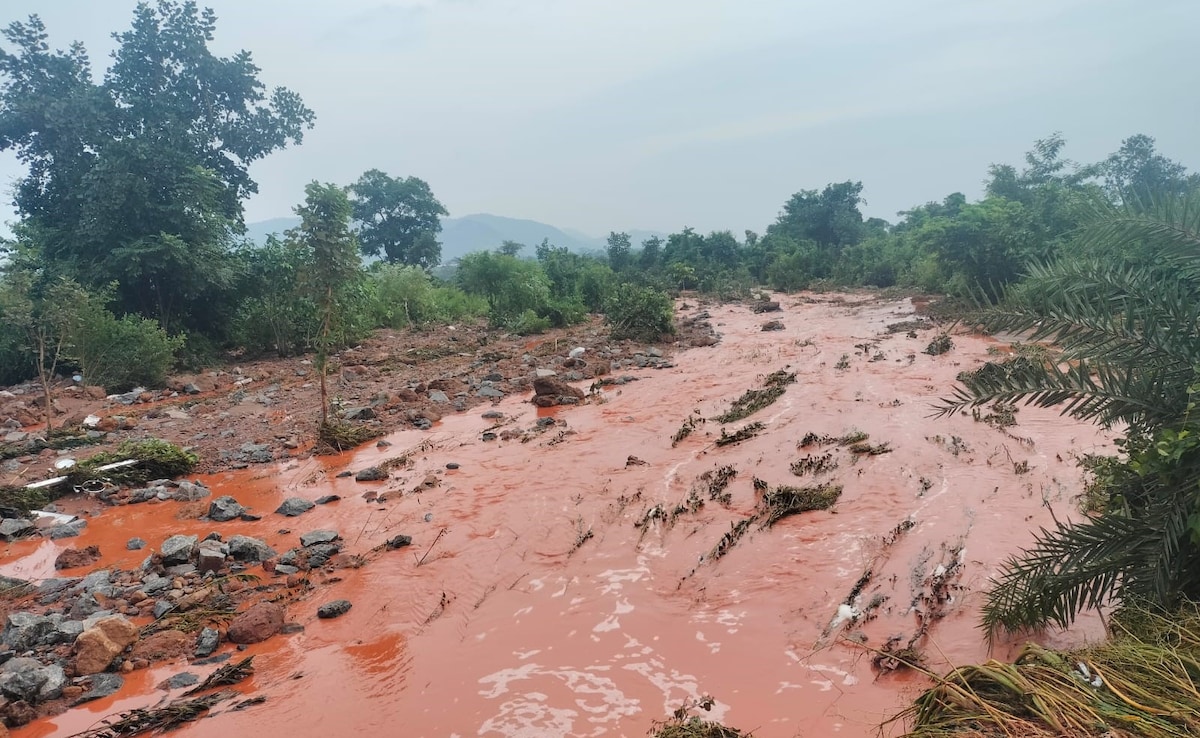A water storage facility breach at miner Vedanta Aluminium’s unit in Odisha has impacted agricultural land, the company said on Monday.
The incident, which happened at Vedanta’s Lanjigarh alumina refinery in Odisha on Sunday, has alarmed environment experts who pointed out it was a serious matter as the toxic byproduct ‘red mud’ was involved.
The pumped water level, or PWL, has causticity in water, meaning it can corrode organic tissue by damaging skin, eyes and mucus membranes.
The water overflowed due to heavy rain, Vedanta Aluminium said.
Visuals of the industrial incident show process water lake downstream of a pond that appeared to have been formed by ‘red mud’. A large volume of muddy red water was also seen flowing into open areas. The water covered the ground where some trees stood, and ran over other forms of vegetation.
‘Red mud’ is the waste generated in production of alumina from bauxite. It is also known as ‘bauxite residue’.
A major environmental issue in handling or disposal of ‘red mud’ is the alkaline nature of waste that may pose risk of contamination due to seepage or overflow, according to the Central Pollution Control Board’s (CPCB) guidelines for handling and management of red mud generated from alumina plants.
Historically, ‘red mud’ has been handled in slurry form and stored in ponds that have caused adverse impacts on the environment globally, including in India, the CPCB says in the guidelines.
There were no injuries or loss of livestock due to the flooding caused by the breach, a Vedanta spokesperson said in a statement.
“There is no disruption in our current operations and the refinery continues to operate in compliance with regulatory requirements. Additionally, there is no damage to our red mud storage facility,” the spokesperson said.














